Discover the best intimacy-building conversation starter cards for couples. Strengthen your bond, spark deep connections, and engage in meaningful conversations with our top picks.
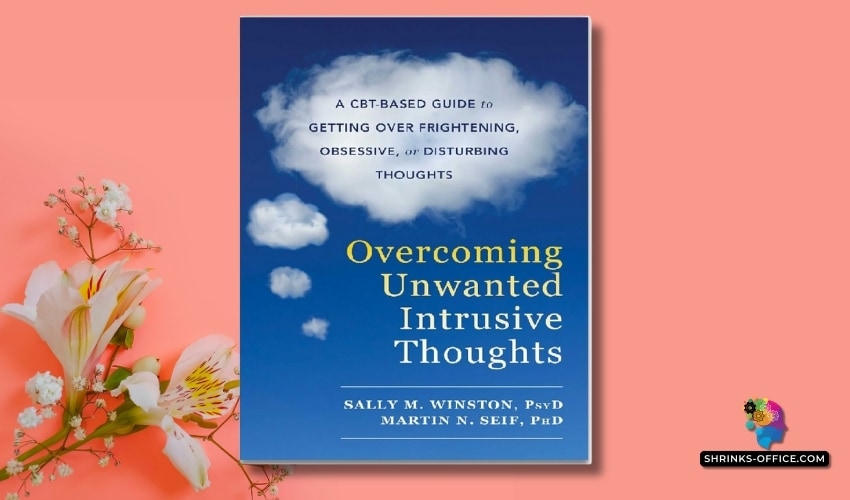
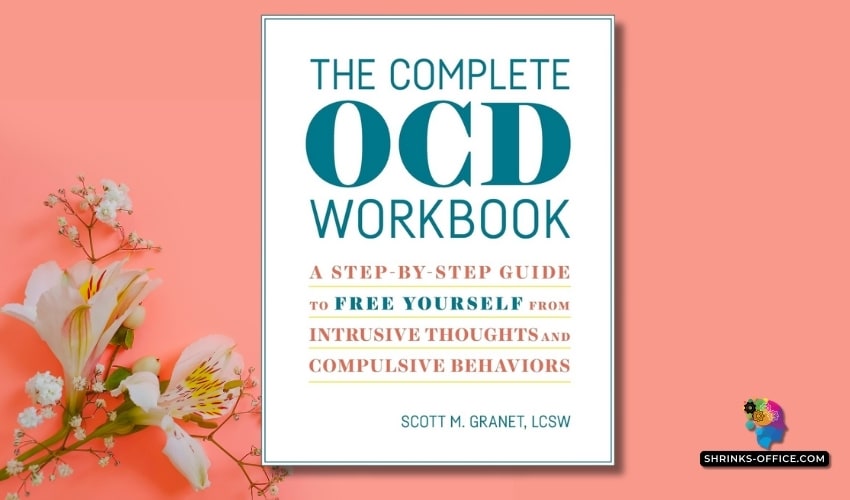
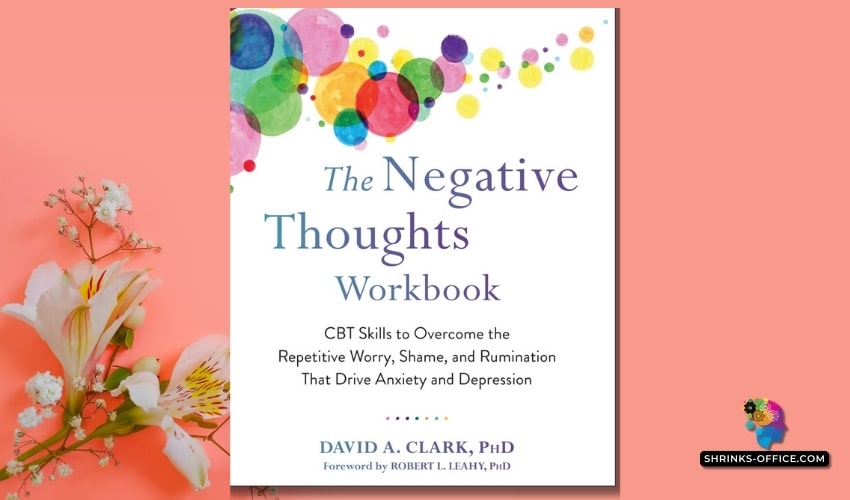
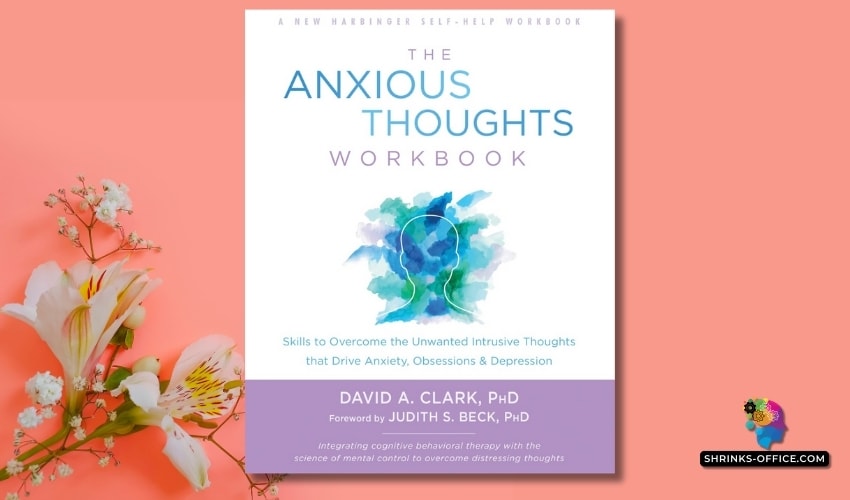
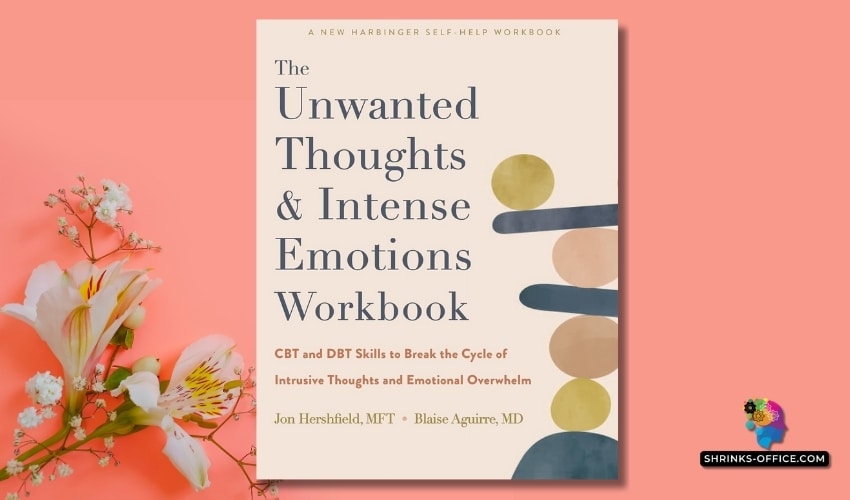
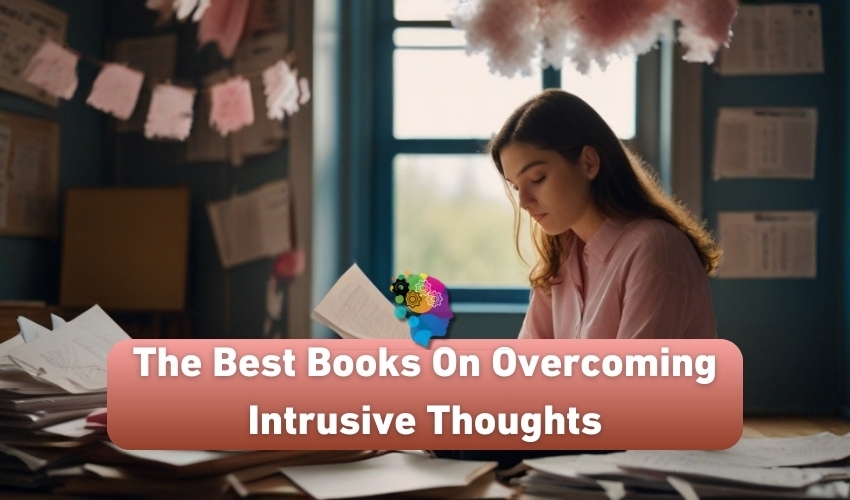
The best books on overcoming intrusive thoughts offer valuable insights into managing these unexpected, often distressing images and ideas. Intrusive thoughts can be symptoms of depression, stress, anxiety, OCD, and are characterized by their unwelcome and involuntary nature. They may become obsessions, difficult to manage or eliminate, and are often linked to brain regions associated with language production[1].
Based on the philosophical notion that language embodies thought, a study investigated whether a habitual tendency for intrusive thought that younger and older participants report over a period of 100 sessions, spread out over about 6 months, found that it is associated with brain regions related to language production . The thoughts feel hard to control and are often repetitive and won't go away– the more you think about it, the more anxious you get and the worse the thoughts get.
As you read on, we will take you through the best workbooks on overcoming intrusive thoughts available today to help you on your journey to a healthier, more balanced lifestyle.
Here are the best books on overcoming intrusive thoughts arranged according to their individual qualities and verified user reviews:

Book Description:
This book written by two anxiety experts offers effective cognitive behavioral therapy (CBT) skills and common techniques to help you get unstuck from disturbing thoughts, overcome the shame these thoughts can bring, and reduce your anxiety and panic attacks.
This book is a compassionate guide that will help you discover the different kinds of disturbing thoughts and myths that surround your thoughts and how your brain has a tendency to get stuck in a cycle of unwanted rumination. In this powerful book, you'll also learn powerful cognitive behavioral skills to help you cope with and move beyond your disturbing thoughts, so you can focus on living the life you want.
About the Authors:
Dr. Sally Winston is a licensed psychologist, born in Montreal, and was educated at Cornell University and the University of Illinois, Champaign-Urbana. Winston spent 18 years at Sheppard Pratt Hospital in Baltimore and then, in 1992 co-founded the Anxiety and Stress Disorders Institute of Maryland which specializes in treating phobias, and panic attacks, OCD, worry, and related anxiety disorders there.
Dr. Martin Seif is a psychologist who specializes in anxiety disorders and is a pioneer in its modern treatment. He grew up in a suburb of New York City and has a private psychotherapy practice in Greenwich, CT. He has enormous experience working with people who are afraid of flying and created and led the popular Freedom to Fly program from 2000 to 2017.
Good Reviews:
Several readers reported that the book is simplistic enough that a teenager can read through it. [2], [3]. One added that it is a genius strategy since the large bulk of the demographic of readers will be those with high anxiety levels. [2]
Another user reported that the book is currently helping to change their life. They narrated that they've been a sufferer of various kinds of OCD all their life and they're over 40 years old. [4].
A therapist who is somewhat new to treating intrusive thoughts also reported that this book was a helpful, science-backed resource for mental health professionals as well as those struggling with intrusive thoughts. She recommends it to her clients to read. [5]
Bad Reviews:
A user complained that the book is a bit too simplistic especially if you are a heavy reader who enjoys complex theoretics. [2].
Potential Strengths:
Potential Weaknesses:

Book Description:
This book delivers a new action-oriented approach that combines cognitive behavioral therapy (CBT), ERP, and mindfulness strategies to effectively take control of and rewire your OCD brain. It arms you with the tools you need to fight obsessive thoughts and compulsions.
This workbook is designed for various types of OCD, from pure (thoughts only) to compulsive behaviors and some other mental health issues like brain lock. It combines CBT, ERP, and mindfulness strategies, and a step-by-step method for confronting intrusive obsessive thoughts and behaviors. This workbook offers a supportive, self-paced framework to free yourself from OCD.
About the Author:
The author Scott M. Granet, L.C.S.W. has been practicing adolescent and adult psychotherapy for over 35 years since he received his Masters degree at New York University. Granet is known for his commitment to increasing professional and public awareness of OCD and body dysmorphic disorder. He has taught in multiple institutions around the country, including the University of California at Berkeley Extension, the University of Arizona Extended University, Santa Clara University, the University of Chicago School of Social Service Administration, and the Rutgers University School of Social Work.
Good Reviews:
A user reported that if you read this book it will help you. [6] Another individual stated that this book is the most helpful they have come across in their research, adding that it's “educational” and also provides “healthy coping skills” and “alternatives”. [7].
A user reported that they bought this book for their loved one and they're hopeful that they'll find the answers they were looking for in its pages. They also said they browsed through it and it seemed to be full of scenarios and information. [8]
Another user said that they're only about “a third way through the book” but it has helped them learn so much about OCD and how to help. [9].
Bad Reviews:
A user warned that this book is not a replacement for therapy. [7]. Another felt that the book is too short. [8]
Potential Strengths:
Potential Weaknesses:

Book Description:
The Negative Thoughts Workbook is an effective CVT approach to help you break the cycle of repetitive negative thinking. It offers a step-by-step program to help you target and effectively cope with negative thinking patterns. Based on effective behavioral and cognitive therapy strategies, this book is a practical guide that outlines a transdiagnostic approach to managing the thoughts that drive your emotional distress and threaten your mental health and well-being.
About the Author:
David A. Clark is a clinical psychologist, therapist, researcher, and Professor Emeritus of Psychology at the University of New Brunswick, Canada. He received his formal training in behavioral therapy and a PhD degree in 1984 at the Institutes of Psychiatry, University of London, England.
Clark has co-authored several books on cognitive behavioral therapy of anxiety and depression with Dr. Beck, the founder of cognitive therapy, including Scientific Foundations of Cognitive Theory and Therapy of Depression, and The Anxiety & Worry Workbook.
Good Reviews:
A user expressed gratitude towards this self-help book. They added that they had no idea what RNT was but their brain was exhausted from constantly worrying and thinking. They ended the review by thanking the publisher for publishing the workbook. [10]
Bad Reviews:
A user reported that this book was not quite as helpful as Overcoming Unwanted Intrusive Thoughts by Sally Winston and Martin Seif. They felt that many of the basic principles covered in the two books are similar. Similarly, they complained that it reads like an “early draft”. They added that some paragraphs contained so much “obvious information” and wondered why they weren't reduced to one to two sentences during editing. [11].
Another dissatisfied user reported that this book might be helpful for some people but they can't imagine it being helpful for anyone in need of genuine help. They claimed it seems like “something a high school guidance counselor would give you for homework”. [12]
Potential Strengths:
Potential Weaknesses:

Book Description:
This workbook is likely to help you regain control of negative thoughts that run through your brain and get back to the things that matter. This step-by-step guide may show you how you can gain distance from your thoughts and improve your life.
In this book, the author presents a targeted, transdiagnostic approach to help you move past unwanted mental intrusions. It teaches how to change the destructive patterns responsible for the persistence of anxious and depressive thinking and strips these upsetting thoughts of their meaning – a process the author refers to as “detoxing”. This workbook may teach you how to manage the emotional distress and feelings of shame that can accompany these bad thoughts.
About the Author:
David A. Clark, the author of The Negative Thoughts Workbook, wrote this helpful workbook. He acquired his formal training in behavioral therapy and a PhD in 1984 at the Institute of Psychiatry, University of London, England. Clark then proceeded to postdoctoral research and clinical training under Dr. Aaron T Beck at the Center for Cognitive Therapy, University of Pennsylvania.
Good Reviews:
A user reported that contrary to their Catholic background that acknowledges that certain thoughts if consented to are sins, this book and others have been extremely helpful in helping them realize that intrusive thoughts are not sins, per se. [13]
Another user reported that this book is a good workbook. [14] Again, another reader mentioned that this is the go-to workbook if you're dealing with an anxiety disorder and want a solid approach to working through it. [15].
Bad Reviews:
A user reported that there are rarely any triggering images or phrases in the book. They also claimed that the book seems short. [16].
Potential Strengths:
Potential Weaknesses:

Book Description:
This workbook is a valuable resource that can help someone who has a formal diagnosis, such as depression, panic attack, fear, bipolar disorder, OCD, or borderline personality disorder (BPD), or simply struggle with unwanted thoughts and the emotions they cause to find the desired relief.
This book is written by two pioneers in the field of mental health. It combines effective treatments to address relentless intrusive and unwanted thoughts and the painful and intense emotions they can trigger.
About the Author:
Blaise Aguirre MD, is an expert in child psychiatry, including psychotherapy and psychopharmacology. Aguirre has worked extensively with children and their families and he is an author and speaker on various aspects of mood, personality, and development in children and adolescents.
Jon Hershfield, MFT, the director of the Center for OCD and Anxiety at Sheppard Pratt in Towson, MD, Specializes in the mindfulness-based and cognitive behavioral treatment of obsessive-compulsive disorder and related disorders. He is the co-author of the books Everyday Mindfulness For OCD and The Mindfulness Workbook for OCD and is the author of Overcoming Harm OCD, When a Family Member Has OCD, and The OCD Workbook for Teens.
Good Reviews:
A user reported that this book was recommended by their therapist to help with their OCD. According to them, it has a great combination of ERP, CBD, and other skills and can be applied to a variety of diagnoses. [17] Another user felt that this book provided the essentials to take charge of one's life and wellness. [18]
A satisfied reader reported that this book is wonderful. They went further to say that Hershfield and Aguirre did an excellent job of framing exposure work and DBT in a lens that blends the two in a clear, concise way. [19].
Bad Reviews:
A dissatisfied reader expressed that they were not impressed with the book. They said that they were underwhelmed, adding that there was no groundbreaking information and that he did not enjoy the “assumptions” the book made. In addition, they mentioned that there was a lot of bad humor. [20]
Potential Strengths:
Potential Weaknesses:
Overcoming Intrusive Thoughts workbook is a practical tool for anyone struggling with unexpected thoughts or images that seem to pop into their head. The workbooks are designed to help people identify their recurring patterns, triggers, and emotions associated with intrusive thoughts.
Here are some steps on how to use the Overcoming Intrusive Thoughts workbook effectively:
Here are just a few of the benefits of using books on overcoming intrusive thoughts:
Intrusive thoughts are a common issue that can be difficult to overcome. However, using a shopping addiction workbook can be a powerful tool in helping individuals take control of their intrusive thoughts and regain their mental and emotional stability.
An Overcoming Intrusive Thoughts workbook is a self-help book designed to assist individuals struggling with intrusive thoughts. It typically includes exercises and activities aimed at helping the user recognize and understand intrusive thoughts.
Intrusive thoughts may not have a cause and can just happen randomly. They may also be related to an underlying mental illness or other mental health issues or conditions, like OCD or PTSD. Intrusive thoughts could also be a symptom of another health issue, such as brain injury, dementia, or Parkinson's disease.
Discover the best intimacy-building conversation starter cards for couples. Strengthen your bond, spark deep connections, and engage in meaningful conversations with our top picks.
Find the best shopping addiction workbooks to guide your journey to recovery, offering structured programs, practical tools, and empowering strategies.
Discover the best verbal abuse books for understanding, coping, and healing from this damaging behavior, offering expert guidance and support.
